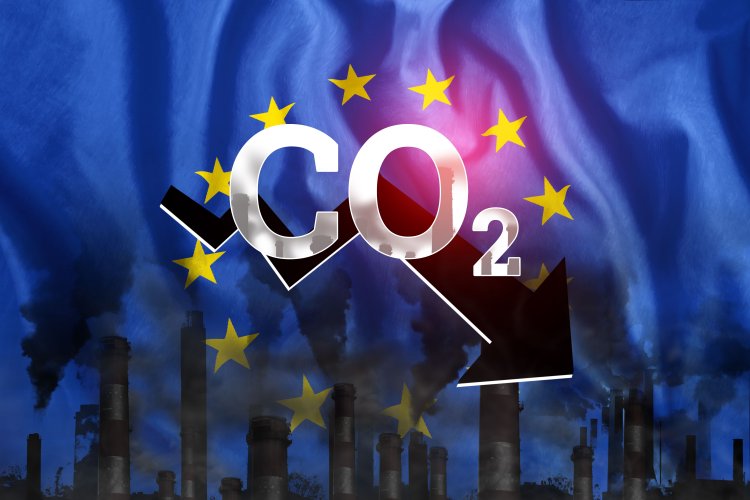MEPs on Tuesday, April 18, approved agreements on the reform of the Emissions Trading System (ETS), the Carbon Border Adjustment Mechanism (CBAM) and the creation of the Social Climate Fund (SCF).
These key pieces of legislation are part of the Fit for 55 package, which aims to cut greenhouse gas emissions by at least 55% by 2030 from 1990 levels, according to the European Parliament's website.
ETS
It is noted that 413 MEPs supported the reform of the emissions trading system, 167 opposed it, and 57 abstained.
"This raises the ambitions of the ETS, as greenhouse gas emissions in the ETS sectors are to be reduced by 62% by 2030 compared to 2005 levels," the report said.
The press service emphasized that the reform cancels free emission quotas for companies from 2026 to 2034. A new ETS II is also being created separately, covering emissions from road transport and building heating until 2027 or 2028 if energy prices are unusually high.
The message added that the new ETS system will also cover emissions from the marine sector. In addition, MEPs voted to revise the ETS for aviation. This will phase out free allowances for the aviation sector by 2026 and promote the use of clean aviation fuel.
Central Bank of Ukraine
It is noted that 487 MEPs voted for the carbon tax, against - 81, and 75 abstained. CBAM is designed to stimulate non-EU countries to strengthen their climate ambitions and prevent the transfer of production to countries with less stringent environmental laws.
Central Bank of Ukraine will apply to goods :
- iron;
- steel;
- cement;
- aluminum;
- fertilizers;
- electricity;
- hydrogen;
- indirect emissions under certain conditions.
The press service explained that importers of these goods will have to pay any price difference between the price for carbon emissions paid in the country of production and the price of carbon emission quotas in the ETS. SVAM will be introduced gradually from 2026 to 2034 at the same rate as the elimination of free allowances.
Social Climate Fund
The message said that the social climate fund will be created in 2026. It will guarantee a fair and socially inclusive climate transition. 521 MEPs supported the creation of the SCF, 75 opposed it, and 43 abstained.
It is noted that the Fund will be financed from the auction of ETS II permits (up to €65 billion), and an additional 25% will be covered by national resources, which is estimated to amount to €86.7 billion.
"Vulnerable households, micro-enterprises and transport users who are particularly affected by energy and transport poverty will benefit from this," the press service emphasized.
It is noted that the texts of the documents must be officially approved by the Council of the EU before being published in the Official Journal and will enter into force in 20 days.
Earlier, EcoPolitic wrote, that the EU came closer to its climate goals by 2030 thanks to changes in the bloc's emissions trading system (EU ETS), as well as the carbon border adjustment mechanism (CBAM).
As EcoPolitic previously reported, the International Monetary Fund (IMF) insists that carbon taxation is the most effective tool for limiting the use of fossil fuels and related CO2 emissions.





